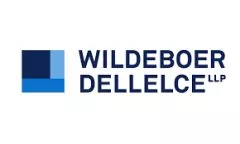On March 6, 2014, the Investment Industry Regulatory Organization of Canada (IIROC) proposed guidance on underwriting due diligence for public offerings in an effort to promote consistency and enhanced standards amongst its Dealer Members in the underwriting due diligence process. The proposed guidance is not intended to apply to Dealer Members participating in offerings conducted in reliance on one or more exemptions from the prospectus and/or registration requirements (private placements).
Pursuant to the proposed guidance, IIROC has confirmed its view that due diligence practices should reflect the gatekeeper role of underwriters, which includes protecting investors, fostering fair and efficient capital markets and creating and maintaining confidence in capital markets. While IIROC acknowledges that due diligence is, by its nature, a fluid and evolving process, and should be customized to be relevant to the particular issuer, the industry in which it operates and the type of security being offered, the proposed guidance does outline certain key principles that IIROC indicates should govern the performance of due diligence, including:
- Each Dealer Member is expected to have written policies and procedures in place relating to all aspects of the underwriting process and to have effective oversight of these activities.
- The Dealer Member should have a due diligence plan that reflects the context of the offering and the level of due diligence that will be reasonable in the circumstances.
- Due diligence "Q&A" sessions should be held at appropriate points during the offering process and are an opportunity for all syndicate members to ask detailed questions of the issuer's management, auditors and counsel.
- The Dealer Member should perform business due diligence sufficient to ensure that the
- Dealer Member understands the business of the issuer and the key internal and external factors affecting the issuer's business.
- Dealer Members should clearly understand the boundary between business due diligence and legal due diligence, to ensure that matters that should be reviewed by the underwriters are not delegated to underwriters' counsel.
- Each syndicate member should satisfy itself that the lead underwriter performed the kind of due diligence investigation that the syndicate member would have performed on its own behalf as lead underwriter.
- A Dealer Member should document the due diligence process to demonstrate compliance with its policies and procedures, IIROC requirements and applicable securities laws.
IIROC has indicated that the proposed guidance is intended to describe common practices and suggestions which may not be relevant or appropriate in every case, and is not intended as a minimum or maximum standard of what constitutes reasonable due diligence. Moreover, IIROC has stipulated that the proposed guidance does not, and is not intended to, create new legal obligations or modify existing ones.
While comment is sought on all aspects of the proposed guidance, IIROC has specifically requested responses on the following questions:
- Are there any further practices for Dealer Members conducting underwriting due diligence that should be included in the proposed guidance?
- Are there other considerations unique to specific types of public offerings, such as "bought deals" or debt offerings, or public offerings by issuers in specific types of industries (e.g., mining, oil and gas, technology)?
- Are there other circumstances that constitute "red flags" indicating that heightened due diligence and/or enhanced disclosure may be appropriate (for example, offerings by emerging market issuers)?
- When acting as a syndicate member, do Dealer Members feel there are sufficient opportunities and adequate processes to allow them to discharge their responsibilities?
- Is the proposed guidance useful for general application to private placements, or should there be consistent standards for all market intermediaries, including Dealer Members and Exempt Market Dealers, participating in private placements in order to afford investors the same level of protection from due diligence regardless of which type of registrant is involved?
Dealer Members and other interested parties are requested to provide comments on any aspect of the proposed guidance. Comments are to be submitted by June 4, 2014.
The content of this article is intended to provide a general guide to the subject matter. Specialist advice should be sought about your specific circumstances.


